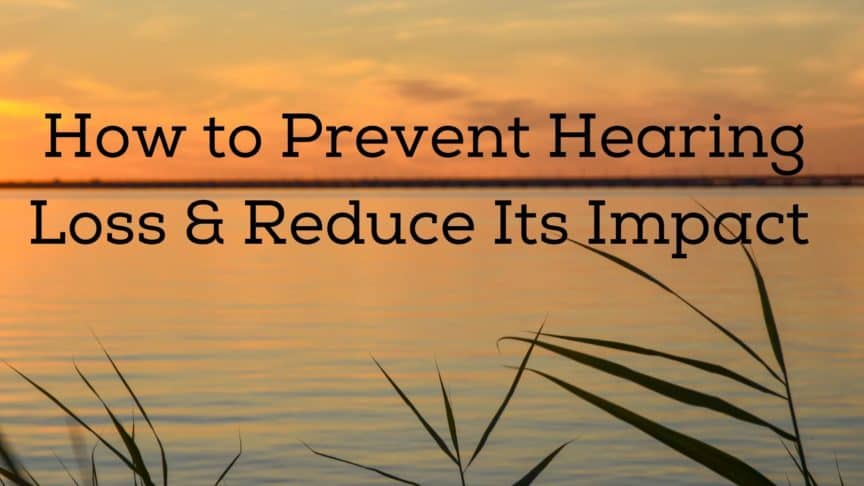One of the most common health issues in the world is also one of the most under-treated. Hearing loss, which can negatively affect every aspect of a person’s life, from their family relationships to their earning power, often goes unrecognized and untreated.
The good news is that awareness about hearing issues is on the rise, and ways to treat hearing loss are more adaptable and practical than ever before. Through education and public health initiatives, access to hearing healthcare can be increased, and information about hearing loss can be better understood.
Stopping hearing loss in its tracks
Most hearing loss occurs gradually throughout our lifetime and can be prevented when we know when and why to protect our hearing.
Hearing damage can occur when noise volume exceeds a constant level of 75 decibels – a volume that will have a permanent impact on your hearing after 24 hours of continuous exposure. The greater the volume, the shorter the exposure time is before your hearing will sustain lasting injury.
Like jet engines, gunshots, and fireworks, extremely loud sounds cause damage to our hearing instantly and can even produce physical pain in the ears.
Occupational Safety and Health Association (OSHA) regulations require hearing protection for job sites and workplaces that produce 85 decibels of noise, which can damage hearing after 8 hours of exposure. But these regulations won’t protect you outside of work. Your best step to preventing hearing loss is by protecting your hearing around loud noise. In addition to using personal hearing protection, we can also advocate for better public noise control which places standards and limits on the noise produced by traffic and construction in an area.
How to recognize the signs of hearing loss
Hearing loss often happens gradually, so it’s essential to learn to recognize the signs of hearing loss in yourself and others. If you experience hearing changes little by little, you may not effectively identify the thresholds of hearing damage.
Often, people with hearing loss can hear others when they are speaking but have difficulty understanding what is being said. Words may sound muffled or mumbling instead of clear. Having to ask for spoken words to be repeated or for people to speak louder is often a sign you may be experiencing significant hearing loss.
Similarly, hearing problems encourage you to increase the listening volume on televisions, stereos, radios, and computer speakers. If your family members have commented on how loud you need the TV volume, consider a hearing exam.
Hearing loss can also alter your behavior patterns in subtle but telling ways. Often being frustrated with your hearing makes it more likely you will avoid complex noise environments like parties, restaurants, airports, or train stations. Events you once enjoyed, like sports games or concerts, become difficult to attend. If you find yourself avoiding social and public situations because of issues with your hearing, it may also indicate hearing loss.
Time to treat yourself early
The good news about hearing loss is that we can treat it effectively. The best way to reduce the impact of hearing loss is to seek treatment early. The more hearing loss is left untreated, the more it alters our natural sense of hearing, changing the essential way we perceive and process sound in our brain. Improving your hearing with hearing aids or assistive devices is easier to adapt to and more effective the earlier treatment is introduced.
Hearing aids can help you hear the sounds of the world and the words of those that you love. Treating hearing loss early means restoring communication and preventing more outstanding hearing issues. A huge part of educating people about hearing loss emphasizes that earlier treatment can make a big difference in your hearing.
Are you ready to take control?
When you have questions about your hearing, you can count on us! We offer complete hearing exams and treatment personalized to your needs. Hearing loss can take a significant toll on your quality of life, but we have years of experience treating hearing loss effectively and reconnecting people with their hearing health.

